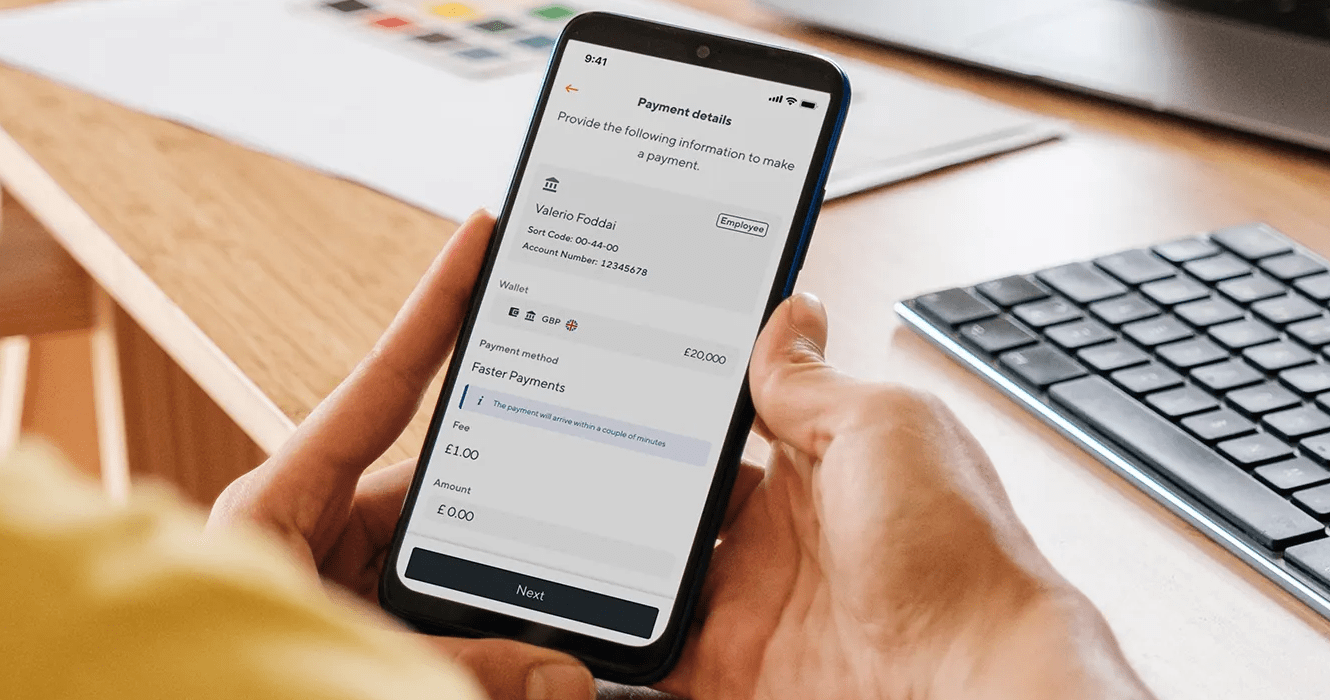The modern CFO: data-wrangler for corporate strategy
Interview with David Axson
The Global Lead of CFO Strategies at Accenture Strategy, David Axson is also the author of “The Management Mythbuster” (Wiley 2010). He has over 30 years’ experience in consulting, finance, industry and entrepreneurship working with clients in more than 40 countries. In this interview, David speaks with prepaid card provider Soldo as to how technology has already changed the role of the CFO and how it will continue to have an impact.
How has the role of the CFO changed – and why?
It all harks back to the financial crisis. When the economy is going well, finance guys just add up the numbers and report the profits. But when you drive over a cliff, as the global economy did in ’08 – ’09, the CFO suddenly becomes the board’s best friend: to conserve cash and capital, to cut costs, and to continue to make money in a challenging environment.
Given the speed and depth of that downturn, corporations actually came out of it pretty well. Bankruptcies were fewer than might have been expected – we saw more fallout from the dotcom bust of the late 90s! This elevated the view of the CFO among boards, regulators and other stakeholders; and drove a huge pivot in where CFOs spend their time.
When I started in finance 35 years ago, the CFO was largely internally focused, an accountant rather than a finance executive, backwards-looking rather than forward-looking. They would focus on ensuring the integrity of the financial statements.
That still remains job one: if a CFO doesn’t do that right, they’ll end up in jail. But today, on nearly every public company’s earnings call, the CEO will talk about strategy, market position and differentiation etc. And the CFO is telling the finance story that runs alongside: what are we going to invest, how are we translating strategy and tactics into financial outcomes. Today, the CFO is the CEO’s key strategic partner.
You no longer need to write large cheques. RPA, machine learning, and artificial intelligence are use-case driven: you don’t need to deploy them across the whole enterprise before you start to see value. Access to IT has been democratised – you can be a really small company and still have very advanced technologies.
If the financial crisis is half of this point of inflection, technology must be the other half?
I would say we’re in the fourth wave of finance systems. When I started in the ‘80s, we were still focused on General Ledger systems. Fairly quickly, we moved to first-generation enterprise resource planning (ERP) systems (SAP, Oracle, PeopleSoft etc.) and the technology landscape expanded beyond the general ledger to all of the downstream processes that feed it. Then, in the 2000s came the data warehousing wave: we were processing transactions, so how can we drive some information and insight out of that?
But what was missing was the “last mile” of applied intelligence; because the heavy lifting to get the data out of those ERP systems and data warehouses was still done by finance professionals playing with spreadsheets, dumping data into PowerPoint slides and calling it a report. It was a massive productivity sinkhole!
Thanks to connectivity and digital, we now have a fourth wave of technology which improves this “last mile” experience. Because we can now share data, we can move towards a single version of the truth; and we can build a common, collaborative language across the enterprise.
In parallel, digital tools have transformed that last mile experience. We can deliver information directly to someone’s mobile device. Finance professionals can access analytics toolsets without the need for vast IT departments. They can run advanced analytics on the fly in a secure environment. And information can be shared visually with leaders in meaningful ways that help them make decisions.
Furthermore, the technology price point has dramatically dropped. You no longer need to write large cheques. RPA, machine learning, and artificial intelligence are use-case driven: you don’t need to deploy them across the whole enterprise before you start to see value. And it’s capital-light because with a SaaS model, you’re paying a service charge based upon volume of business activity: you don’t have to build your own data centres. Access to IT has been democratised – you can be a really small company and still have very advanced technologies.
Technology is allowing CFOs to do more, but it is also changing the nature of competitive practice. Cycle times are down, forecasting horizons are shorter and risk is harder than ever to understand. Surely digital means CFOs are dealing with more challenging management conditions?
There are a couple of dimensions to this. First, the point about cycle times is key. Virtually everything we did in finance historically was dictated by the calendar: end of the month, end of the quarter, budget season etc. That’s no longer viable: the finance function must be event driven. We must be responsive to ideas germinating within our own organisation that demand investment cases; and we must react to events in the marketplace – a major exchange rate change, Brexit, competitor activities etc.
You can’t wait for the end of the quarter to work out the impacts and opportunities in response to those events anymore. It simply isn’t acceptable for Finance to say to the business, “I can’t help you this week, because I’m closing the books.” Yet that still does happen! So it’s crucial to move from calendar-driven to event-driven, which can be a significant mindset change.
Then there’s the concept of risk. CFOs have a view of risk that is significantly expanded from what it used to be historically. In the old days, we would think about compliance risk from a financial audit standpoint. We might think about market price risk if we trade commodities or hold assets on a balance sheet with variable values. We talked about foreign exchange rate and interest rate risk.
Today, conversely, CFOs are thinking about sustainability risk, reputational risk and cybersecurity risk. CFOs are front and centre with many of the data-related issues that we see in the press every single week, because they’re being asked to understand and explain what the organisation is doing to mitigate those risks. Reputational and security risks are huge. What happens if you lend money to companies that turn out to be using child labour in Asia? What about the endless flow of data breaches? The buck stops with the CFO and the CEO to establish risk quantification and mitigation strategies. Even insurance will only mitigate the direct physical or financial loss – it won’t mitigate the reputational risk associated with a major meltdown. I haven’t sat in a board meeting for many years where data security was not a top-five issue.
Interestingly, the knock-on effect is that talent has moved to the very top of the agenda. Finance people used to complain that they didn’t have the data. Well, we’ve now got more data than you can shake a stick at – it’s how we use technology to interpret it that’s more important. In most major economies, we’re pretty close to full employment, particularly for talented finance professionals. So attracting, acquiring and retaining talent is key. Most CFOs tell me that they don’t need more accountants; but they do need data scientists, visualisation specialists and app developers.
I was with the CFO of a large healthcare company a few months ago, and she had just been having lunch with her new MBA and graduate hires. And for the first time, she was asked: “Where is our Finance app store? Where do I go to get the functionally rich apps that help me to do my job?” She reflected on it and realised that there was only one app: a spreadsheet template. The expectation of workers is driving the change here; and CFOs are beginning to understand and respond to it.
You say that we now have “one version of the truth” and a dramatically improving “last mile” data experience. What’s next to transform the CFO role – presumably AI will be exceptionally powerful?
I think there are three categorisations to consider:
- Process automation technologies: automating what we do manually today, and doing it faster and more accurately every time
- Machine Learning: where machines get smarter through each human interaction, until they can fulfil a function themselves (for example, driverless cars).
- AI: offering applied intelligence to humans who can then use those insights to make better decisions
Hang on – that’s an interesting definition of AI…
AI only delivers value when you combine the technology with human capability. The true value of what Finance delivers is only as good as the decisions and actions that result from the information that we provide. There’s a phrase I use all the time with my clients: “How do we get from insight to action?” So Finance’s role does not end with creating a report. It begins there. It means coaching, interacting with the business leadership, helping them to understand the analysis that we’re delivering, and most importantly, the actions that we’re taking.
AI will massively simplify the production of information, selecting important touchpoints and the heavy lifting of analysis. It will get us to the insight. But it serves to highlight that the human ability to act on that insight is what will actually determine success going forward.
Accenture did a research piece at the end of last year which found that 88% of finance professionals think this is the most exciting time to ever have worked in finance, because we’ve finally liberated the finance professional from the tyranny of the spreadsheet. It’s creating some very interesting future career paths for finance professionals – we’re already seeing plenty of CFOs move into the CEO role.
AI only delivers value when you combine the technology with human capability. The true value of what Finance delivers is only as good as the decisions and actions that result from the information that we provide. So Finance’s role does not end with creating a report. It begins there. It means coaching, interacting with the business leadership, helping them to understand the analysis that we’re delivering, and most importantly, the actions that we’re taking.
CFOs are also technicians. They are the instinctive ally of the IT team and technologists in general, even though they don’t necessarily get the credit for being the natural drivers of digital transformation…
Exactly right, and that’s particularly playing out around the subject of data; because no one’s better placed in an organisation to exert governance over data than the CFO – we’ve been doing it for decades!
Today, we’re beginning to see much larger and more diverse datasets. It’s not just financial data: we have increasingly rich operational data; as nearly every activity in a company has a digital signature or record associated with it. We also have vast amounts of market and customer-related information.
And as we move further out from the financial core, the discipline and governance around data tends to weaken. But because this market and operational data is frequently predictive of future financial results (e.g. footfall is predictive of future sales), this data is the best area for CFOs to expand their remit around governance and data quality, which also then brings them to the heart of what do we do with data. It can govern and guide future decision making. And that puts the finance professional and the technology professional side by side, because you need to have both the data users and data aggregators working together to be effective.
We’re only at the beginning.
If I could predict what those technologies are going to look like five years from now, I would probably be sitting on a beach right now. But we are only at the beginning of what I believe is the single biggest transformation in the role of Finance in corporate life.
Accenture’s CFO & Enterprise Value Strategy team see the CFO as front-and-centre in digital transformation: “Digital is rapidly changing how companies operate, adopt tech and manage risk. Organizations must have the right leadership and digital tools to seize and analyze meaningful data that optimizes process and operations, enables enterprise innovation, and unlocks new value in a disruptive world. Who better to decode the new than the company’s Chief Financial Officer—increasingly the key executive approving the investments required to transform the organization to where it needs to be in the future?”
This interview is part of a series by Soldo, the prepaid company card solution that makes your expense accounting simple. You can read more interviews from Soldo’s interview series here.








